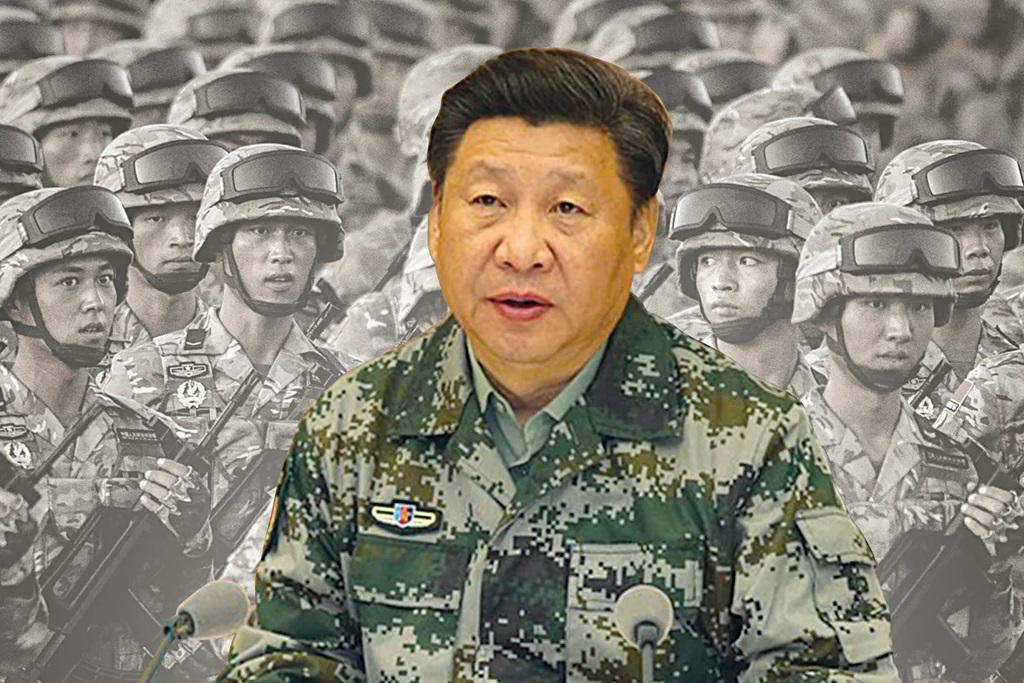Xi Jinping, China’s leader, has proposed a comprehensive military overhaul, including the construction of a new Army Information Support Force to deal with hybrid warfare. Xi stressed that China must prioritize military growth in the modern period, as well as improve its capabilities through reform, science, and fresh talent.
The Chinese leader hailed the newly formed army wing as a ‘strategic force’ that will give critical support for coordinating and utilizing information system networks. “It will play a crucial role in advancing the Chinese military’s high-quality development and competitiveness in modern warfare,” he stated on the Chinese government’s website.
General Bi Yi was named commander of the new military branch, while General Li Wei served as political commissar. Commissars are the People’s Liberation Army’s second-in-command, in charge of administrative chores and political instruction.
Xi also stated that it is critical to “adhere to information-led and joint victory, smooth information links, integrated information resources,” as well as tighten information protection.
Meanwhile, Beijing abolished its Strategic Support Force, which was established in 2015 to improve China’s competence in space, cyber, political, and electronic warfare, as well as to assist it in fighting “informational conflicts.”
Most significant since 2015
In response to the revisions, Defense Ministry spokesman Wu Qian stated that China currently has four military services (Army, Navy, Air Force, and Rocket Force), as well as four arms (Aerospace Force, Cyberspace Force, Information Support Force, and Joint Logistics Support Force).
Bloomberg labeled the military change as the most significant since 2015. It comes after the removal of nine senior military commanders from parliament in December, four of whom had served in the Rocket Force.
This follows the dismissal of former defense chief Li Shangfu in October. Beijing provided no explanation for the reshuffles, but Western media sources said Li was under investigation for potential corruption.
China has continually taken attempts to strengthen its military capabilities amidst its rivalry with the United States, which has only grown in recent years as a result of the standoff over Taiwan.
While China considers the self-governing island to be part of its sovereign territory, Washington has approved military equipment supplies to Taipei, with President Joe Biden promising to defend it in the event of an incursion by Beijing.
US Secretary of State Blinken to Warn China
Meanwhile, US Secretary of State Antony Blinken plans to warn Chinese officials about the risks of transferring minerals to Russia with potential military applications when he visits Beijing on Wednesday.
Blinken, who will visit Beijing and Shanghai on a three-day trip to the People’s Republic of China (PRC), intends to meet with Foreign Minister Wang Yi. He would “reiterate deep concerns regarding the PRC’s support for Russia’s defense industrial base,” a US State Department spokesperson told reporters.
China’s exports of machine tools, microelectronics, optics, and other equipment that could be used to manufacture weapons are at issue in the midst of the Ukrainian conflict. US Treasury Secretary Janet Yellen offered a similar warning during her visit to China earlier this month.
“The concern there is that through Chinese support, Russia has largely reconstituted its defense industrial base, which has an impact not just on the battlefield in Ukraine, but poses a larger threat, we believe, to broader European security,” said a spokesman for the State Department. “So that is deeply concerning to us.” We will voice our concerns to China and our intention to have China reduce its support.”
Hold China accountable
The State Department has stated that it will take “further steps as necessary” to prevent China from assisting Russia’s weapons industry. “We’re committed to taking the steps necessary to defend our national interests, and we’re prepared to take steps when we believe necessary against firms that are taking steps in contravention to our interests and in ways that – as we’ve indicated here – severely undermine security in both Ukraine and Europe,” said a spokesman for the government.
Blinken discussed the issue during a meeting with G7 leaders in Italy earlier this week. He will not identify potential consequences during talks in Beijing, but the Financial Times claimed that additional restrictions could target Chinese financial institutions, citing unnamed sources.
The United States is “very direct” about its worries and will “hold China accountable” for its activities in delivering dual-use technologies to Russia while attempting to improve ties with Europe, according to Deputy Secretary of State Kurt Campbell. “What we’ve tried to underscore with European and Chinese interlocutors is that these dual objectives are inconsistent, and that we want China to think very carefully about the way forward.”
Chinese officials have maintained a neutral stance on the Ukraine war, insisting that Beijing is not selling weaponry to Russia. They have reacted angrily to claims of breaking Western sanctions placed on Moscow.
“China regulates the export of dual-use articles in accordance with laws and regulations,” Mao Ning, spokeswoman for the Chinese Foreign Ministry, told reporters earlier this week. “Relevant countries should not smear or attack the normal relations between China and Russia and should not harm the legitimate rights and interests of China and Chinese companies.”






